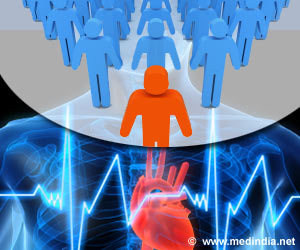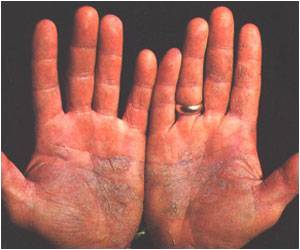Reminding people of those who are important to them and inducing feelings of connection with them reduces the need to ascribe humanlike traits to objects.

- Human beings experience the feeling of social disconnection, loneliness and isolation at some point in life.
- People might go to any length to reconnect, from reinforcing existing social bonds to ascribing human like traits to inanimate objects like pillow or clock.
- Study shows that people who think about their loved ones through fond memories have reduced need to anthropomorphize or attribute human like traits to inanimate objects.
"Most of us, at some point or another, will experience feelings of disconnection, loneliness, and isolation. Whether these feelings are long-lasting or due to temporary circumstances like being relocated for a job or school, social disconnection is something we're all vulnerable to experiencing."Jennifer added.
There are many ways that people who feel socially disconnected can reconnect -- they can try reinforce existing social bonds or forge new relationships, but there are other ways, too.
A 2008 study reported by psychology researcher Nicholas Epley and colleagues, for example, showed that one of the ways that people may try to increase their sense of connection and belonging is by anthropomorphizing inanimate objects, such as a pillow or an alarm clock.
Given the association between social disconnection and anthropomorphism, Bartz and study co-authors Kristina Tchalova and Can Fenerci, also of McGill University, wondered whether boosting people's feelings of social connection might make them less likely to anthropomorphize.
The researchers conducted an online experiment with a total of 178 participants, who completed a variety of established survey measures aimed at assessing their feelings of attachment anxiety and avoidance, loneliness, self-esteem, and need to belong.
They listed six traits describing that person, visualized what it would be like to be with the person, and then wrote a few sentences describing their thoughts and feelings.
These activities were intended to induce feelings of social connection by reminding people of previous experiences when they felt connected and cared for.
Other participants completed the same tasks but were told to think about an acquaintance, instead of someone they were close to, serving as a comparison group.
Participants in both groups then read descriptions of four gadgets, including an alarm clock that rolls off your nightstand when the alarm goes off, and they rated the objects on various social and nonsocial dimensions.
Participants who reported feeling lonely were more likely to ascribe human traits to the gadgets than were non-lonely people.
Participants who thought and wrote about someone they were close to were less likely to anthropomorphize the objects compared with participants who thought about an acquaintance.
In addition, the researchers found that attachment anxiety was associated with a tendency to anthropomorphize, and was actually a stronger predictor than loneliness was.
"The fact that attachment anxiety was linked with anthropomorphism but other forms of interpersonal insecurity, like attachment avoidance, weren't suggests that this may be a 'motivated cognitive process' driven by an intense need to seek out and identify sources of support in the environment," explains Bartz.
"Although anthropomorphism is one of the more creative ways people try to meet belonging needs, it is nevertheless difficult to have a relationship with an inanimate object," Bartz, Tchalova, and Fenerci write in their paper. "Reliance on such a compensatory strategy could permit disconnected people to delay the riskier--but potentially more rewarding-- steps of forging new relationships with real people."
"These findings highlight a simple strategy that could help get lonely people on the road to reconnection," the researchers conclude.
Source-Medindia









